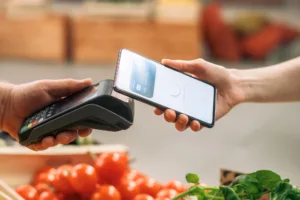Keeping Your Digital Wallet Secure

In a world that is increasingly digital, the convenience of digital wallets is undeniable. However, with convenience comes risk, and protecting your digital wallet has never been more crucial. This comprehensive guide will walk you through understanding digital wallets, recognizing their vulnerabilities, and learning practical ways to secure them. Let’s ensure your financial and personal data stays safe.
What is a Digital Wallet?
A digital wallet is a virtual tool that securely stores payment information, allowing users to make transactions without physical cards or cash. From apps like Apple Pay and Google Wallet to online platforms like PayPal, digital wallets are reshaping the way we handle money. Their key features include:
- Storing debit and credit card details.
- Facilitating secure payments via smartphones or online platforms.
- Managing loyalty cards, tickets, and even IDs in some cases.
Understanding how these wallets work is the first step in protecting them.
Why Digital Wallet Security is Crucial
The adoption of digital wallets is growing exponentially, bringing new opportunities—and risks. Cybercriminals see digital wallets as lucrative targets, given the sensitive data they hold. If compromised, the impact can be devastating, leading to:
- Financial loss.
- Identity theft.
- Damage to credit scores.
By securing your digital wallet, you protect not just your finances but your peace of mind.
Common Security Threats to Digital Wallets
Understanding the risks is vital to mitigating them. Common threats include:
- Phishing Scams: Fraudulent emails or messages tricking you into sharing login credentials.
- Malware Attacks: Software designed to steal sensitive data from your devices.
- Unauthorized Access: Exploiting weak passwords or unsecured devices.
- Social Engineering: Manipulating individuals into revealing confidential information.
By identifying these threats, you can take proactive steps to avoid them.
How to Secure Your Digital Wallet
Protecting your digital wallet doesn’t require technical expertise—just good practices. Here are some steps to ensure its safety:
- Use Strong Passwords and Multi-Factor Authentication (MFA)
- Opt for a unique, complex password for each wallet account.
- Enable MFA, which requires a secondary verification method, like a code sent to your phone.
- Keep Software Updated
- Regularly update your apps and operating system to patch vulnerabilities.
- Enable automatic updates where possible.
- Avoid Public Wi-Fi for Transactions
- Public networks are prone to interception by hackers. Use a VPN if you must access sensitive accounts.
- Recognize and Avoid Phishing Attempts
- Double-check links and sender details before clicking.
- Avoid entering sensitive information in response to unsolicited messages.
Tools and Features for Enhanced Security
Take advantage of modern tools to strengthen your defenses:
- Biometric Authentication: Fingerprint or facial recognition adds a robust layer of security, making unauthorized access more difficult.
- Password Managers Store and generate strong passwords securely, reducing the risk of reuse or weak passwords.
- Using Trusted Apps and Platforms: Download apps only from official app stores and vet platforms for reliability.
Role of Financial Institutions in Digital Security
Financial institutions play a critical role in safeguarding digital transactions. At UCCU, member security is a top priority. Features include:
- Advanced fraud detection systems.
- Secure mobile wallet integration.
- Educational resources to keep members informed.
UCCU’s Commitment to Member Security
- Secure Digital Transactions with UCCU: UCCU provides members with tools like mobile wallet services that ensure encrypted and secure payments.
- Educational Resources from UCCU: Explore blogs, workshops, and guides on financial literacy and digital security to stay ahead of potential risks. Explore UCCU’s digital security resources here.
What to Do If Your Digital Wallet is Compromised
If you suspect your digital wallet has been compromised, act quickly:
- Freeze Accounts: Immediately halt transactions via your wallet or bank app.
- Change Passwords: Update login credentials across all affected accounts.
- Contact Service Providers: Notify your bank and the wallet provider to flag suspicious activity.
- Report Fraud: File a report with local authorities and relevant financial bodies.
Future of Digital Wallet Security
The future of wallet security is promising, with technologies like blockchain and decentralized identities gaining traction. These advancements aim to reduce reliance on centralized data storage, making breaches less likely.
Commonly Asked Questions
1. Are digital wallets safe?
Yes, when used correctly with features like encryption and MFA.
2. How can I detect phishing scams?
Look for generic greetings, suspicious links, and grammar errors in emails.
3. Should I use a public Wi-Fi network for payments?
Avoid public Wi-Fi unless connected via a secure VPN.
4. What is the best password practice?
Use a mix of letters, numbers, and symbols, and never reuse passwords.
5. How does UCCU protect its members?
UCCU offers secure mobile wallet services and fraud detection tools.
6. Can biometric data be hacked?
While not impossible, biometric security is much harder to bypass than passwords.
Digital Wallet Security Moving Forward
Digital wallets offer unparalleled convenience, but their security depends on you. Stay informed, use available tools, and rely on trusted institutions like UCCU for guidance and protection. Together, we can build a safer digital world.
- Previous
- Understanding Year-End Tax Planning


